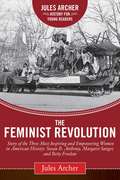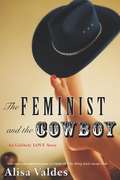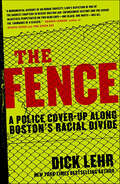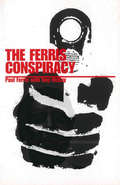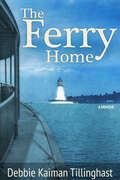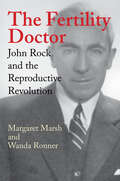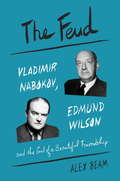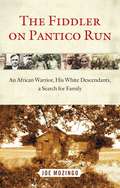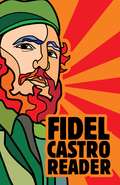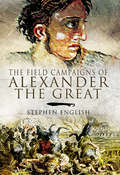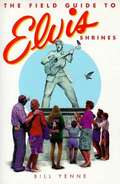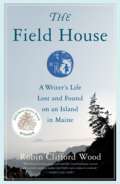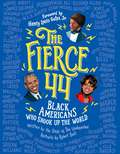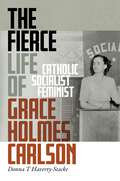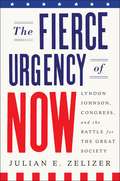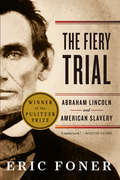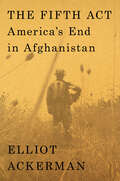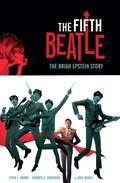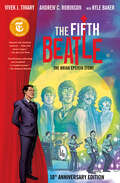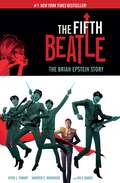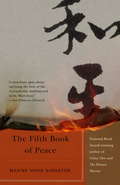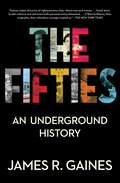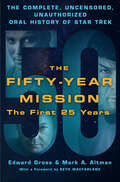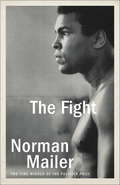- Table View
- List View
The Feminist Revolution: A Story of the Three Most Inspiring and Empowering Women in American History: Susan B. Anthony, Margaret Sanger, and Betty Friedan (Jules Archer History for Young Readers)
by Jules ArcherToday, feminism is as important as ever. Betty Friedan’s musings, "to take the actions needed to bring women into the mainstream of American society, now; full equality for women, in fully equal partnership with men,” still hold fervently true in current society. Young readers still fighting for equality today need to know how the movement began years ago, with such basics as the right to vote, the right to birth control, and the right to equal employment. Leading historian Jules Archer’s account offers fascinating biographies of Susan B. Anthony, Margaret Sanger, and Betty Friedan, with a full background of the political organizations they worked for and against. Forty-four percent of general American history books do not even mention the struggle for women’s suffrage, and 65 percent fail to record the name of Susan B. Anthony. Even more young readers have never heard the names of Margaret Sanger and Betty Friedan. As far as most of these books are concerned, women are invisible in American history. But these women dared to defy convention, at great personal risk, for the cause of sexual and gender equality. Their stories must be remembered. With a new foreword by feminist author Naomi Wolf, The Feminist Revolution relies heavily on letters, diaries, and other personal forms of communication to tell the story of women’s rights in this country. Part of Sky Pony Press’s revitalization of the Jules Archer History for Young Readers, series, this book is a must-read introduction to the Feminist Revolution for all young adults.
The Feminist and the Cowboy
by Alisa ValdesFrom a young age Alisa Valdes was a committed feminist with her hippie Marxist parents raising her to believe she was meant for better things than playing with Barbies. Instead she grew up reading Betty Friedan. At 22 she was named as one of the top feminist writers under 30. Yet despite her professional success, Valdes turned 42 and found herself bitter, divorced and a serial dater of inadequate men. Realising that her upbringing had sabotaged her personal happiness, she embarks on a soul searching journey and ends up falling for a domineering, conservative cowboy.
The Fence: A Police Cover-up Along Boston's Racial Divide
by Dick Lehr“A monumental account of an urban travesty….[It] has all the earmarks of a classic.”—Dennis Lehane, New York Times bestselling author of Mystic River and Shutter IslandDick Lehr’s The Fence, subtitled, “A Police Cover-up Along Boston’s Racial Divide,” is a shocking true story of racism, brutality, official lies and negligence, when the truth about the savage beating of black plainclothes policeman by white officers was hidden behind a “blue wall of silence.” Respected journalist Lehr, winner of the Hancock Award, the Loeb Award, finalist for the Pulitzer Prize, and bestselling author of Black Mass and Judgment Ridge, sheds a brilliant light on all aspects of this powerful, disturbing event and its aftermath.
The Ferris Conspiracy
by Paul Ferris Reg McKayOn Glasgow's meanest streets life started well for the young Paul Ferris. How did he become Glasgow's most feared gangster, deemed a risk to national security?Arthur Thompson, Godfather of the crime world and senior partner of the Krays, recruited young Ferris as a bagman, debt collector and equaliser. Feared for his capacity for extreme violence, respected for his intelligence, Ferris was the Godfather's heir apparent. But when gang warfare broke, underworld leaders traded in flesh, colluding with their partners - the police. Disgusted, Ferris left the Godfather and stood alone. They gave him weeks to live.While Ferris was caged in Barlinnie Prison's segregation unit accused of murdering Thompson's son, Fatboy, his two friends were shot dead the night before the funeral and grotesquely displayed in a car on the cortége's route. Acquitted against all the odds, Ferris moved on, determined to make an honest living.They would not let him.The National Crime Squad, MI5, the police and two of the country's most powerful gangsters saw to that. A maximum-security prisoner, Ferris is known as 'Lucky' because he is still alive.This is one man's unique insight into Britain's crime world and the inextricable web of corruption - a revealing story of official corruption and unholy alliances.
The Ferry Home: A Memoir
by Debbie Kaiman TillinghastStep back in time to a simpler life as you read this captivating memoir of growing up in the 1950s on the small island of Prudence along the New England coast.Step back in time to a simpler life as you read this captivating memoir of growing up in the 1950s on the small island of Prudence along the New England coast. A story of reconnecting to long-forgotten childhood bonds and memories, Debbie Kaiman Tillinghast's The Ferry Home embraces joyful moments with humor and more troubling emotions with compassion. If you have ever faced emotional challenges within your family or had a sibling relationship with both squabbles and shared mischief, if you have found peace in one memorable place, or if you have ever longed for any of these, then this book is for you. Experience the rhythm of life on Prudence Island, the ebb and flow of changing tides and seasons, and the patterns and relationships that emerge. It is a place where independence is fostered, but friends are always there when needed. As Debbie's vivid accounts unfold, you will feel like you too have just stepped off the ferry and been embraced by the tiny Prudence Island community.
The Fertility Doctor: John Rock and the Reproductive Revolution
by Margaret Marsh Wanda RonnerAs Louise Brown—the first baby conceived by in vitro fertilization—celebrates her 30th birthday, Margaret Marsh and Wanda Ronner tell the fascinating story of the man who first showed that human in vitro fertilization was possible.John Rock spent his career studying human reproduction. The first researcher to fertilize a human egg in vitro in the 1940s, he became the nation’s leading figure in the treatment of infertility, his clinic serving rich and poor alike. In the 1950s he joined forces with Gregory Pincus to develop oral contraceptives and in the 1960s enjoyed international celebrity for his promotion of the pill and his campaign to persuade the Catholic Church to accept it. Rock became a more controversial figure by the 1970s, as conservative Christians argued that his embryo studies were immoral and feminist activists contended that he had taken advantage of the clinic patients who had participated in these studies as research subjects. Marsh and Ronner’s nuanced account sheds light on the man behind the brilliant career. They tell the story of a directionless young man, a saloon keeper’s son, who began his working life as a timekeeper on a Guatemalan banana plantation and later became one of the most recognized figures of the twentieth century. They portray his medical practice from the perspective of his patients, who ranged from the wives of laborers to Hollywood film stars.The first scholars to have access to Rock’s personal papers, Marsh and Ronner offer a compelling look at a man whose work defined the reproductive revolution, with its dual developments in contraception and technologically assisted conception.
The Feud: Vladimir Nabokov, Edmund Wilson, and the End of a Beautiful Friendship
by Alex BeamThe Feud is the deliciously ironic (and sad) tale of how two literary giants destroyed their friendship in a fit of mutual pique and egomania.In 1940, Edmund Wilson was the undisputed big dog of American letters. Vladimir Nabokov was a near-penniless Russian exile seeking asylum in the States. Wilson became a mentor to Nabokov, introducing him to every editor of note, assigning him book reviews for The New Republic, engineering a Guggenheim Fellowship. Their intimate friendship blossomed over a shared interest in all things Russian, ruffled a bit by political disagreements. But then came the worldwide best-selling novel Lolita, and the tables were turned. Suddenly Nabokov was the big (and very rich) dog. The feud finally erupted in full when Nabokov published his hugely footnoted and virtually unreadable literal translation of Pushkin's famously untranslatable verse novel, Eugene Onegin. Wilson attacked his friend's translation with hammer and tongs in The New York Review of Books. Nabokov counterattacked. Back and forth the increasingly aggressive letters flew, until the narcissism of small differences reduced their friendship to ashes.Alex Beam has fashioned this clash of literary titans into a delightful and irresistible book--a comic contretemps of a very high order and a poignant demonstration of the fragility of even the deepest of friendships.(With black-and-white illustrations throughout)From the Hardcover edition.
The Fiddler on Pantico Run
by Joe Mozingo"My dad's family was a mystery," writes prize-winning journalist Joe Mozingo. Growing up, he knew that his mother's ancestors were from France and Sweden, but he heard only suspiciously vague stories about where his father's family was from--Italy, Portugal, the Basque country. Then one day, a college professor told him his name may have come from sub-Saharan Africa, which made no sense at all: Mozingo was a blueeyed white man from the suburbs of Southern California. His family greeted the news as a lark--his uncle took to calling them "Bantu warriors"--but Mozingo set off on a journey to find the truth of his roots. He soon discovered that all Mozingos in America, including his father's line, appeared to have descended from a black man named Edward Mozingo who was brought to the Jamestown colony as a slave in 1644 and won his freedom twenty-eight years later. He became a tenant farmer growing tobacco by a creek called Pantico Run, married a white woman, and fathered one of the country's earliest mixed-race family lineages. But Mozingo had so many more questions to answer. How had it been possible for Edward to keep his African name? When had some of his descendants crossed over the color line, and when had the memory of their connection to Edward been obscured? The journalist plunged deep into the scattered historical records, traveled the country meeting other Mozingos--white, black, and in between--and journeyed to Africa to learn what he could about Edward's life there, retracing old slave routes he may have traversed. The Fiddler on Pantico Run is the beautifully written account of Mozingo's quest to discover his family's lost past. A captivating narrative of both personal discovery and historical revelation that takes many turns, the book traces one family line from the ravages of the slave trade on both sides of the Atlantic, to the horrors of the Jamestown colony, to the mixed-race society of colonial Virginia and through the brutal imposition of racial laws, when those who could pass for white distanced themselves from their slave heritage, yet still struggled to rise above poverty. The author's great-great-great-great-great grandfather Spencer lived as a dirt-poor white man, right down the road from James Madison, then moved west to the frontier, trying to catch a piece of America's manifest destiny. Mozingos fought on both sides of the Civil War, some were abolitionists, some never crossed the color line, some joined the KKK. Today the majority of Mozingos are white and run the gamut from unapologetic racists to a growing number whose interracial marriages are bringing the family full circle to its mixed-race genesis. Tugging at the buried thread of his origins, Joe Mozingo has unearthed a saga that encompasses the full sweep of the American story and lays bare the country's tortured and paradoxical experience with race and the ways in which designations based on color are both illusory and life altering. The Fiddler on Pantico Run is both the story of one man's search for a sense of mooring, finding a place in a continuum of ancestors, and a lyrically written exploration of lineage, identity, and race in America. *** From The Fiddler on Pantico Run As I listened to the dry rasp of the elephant grass, I gazed out over the Kingdom of Kom. A narrow gorge threaded through the lush terrain below, opening into a smoky blue chasm in the distance, the Valley of Too Many Bends. . . . This belt of fertile savannah in western Cameroon rested at a terrible crossroads, with no forest to hide in when the marauders arrived. The kings may have been safe in their fortified isolation, but their people were not. They were taken first by Arab invaders in the Sudan in the north, and then by the southern peoples who found that humans were the commodity Europeans most desired. . . . Those who survived had been handed from tribe to tribe, through too many hostile foreign territories to dream of escaping and returning home. And then off they went, into the sea. High on a ridge, three hundred miles by road from the Atlantic, I sat ...
The Fiddler on Pantico Run: An African Warrior, His White Descendants, A Search for Family
by Joe MozingoIn this gorgeously written and "vividly fascinating" (Elle) account, a prize-winning journalist digs deep into his ancestry looking for the origins of his unusual last name and discovers that he comes from one of America's earliest mixed-race families."My dad's family was a mystery," writes journalist Joe Mozingo, having grown up with only rumors about where his father's family was from--Italy, France, the Basque Country. But when a college professor told the blue-eyed Californian that his family name may have come from sub-Saharan Africa, Mozingo set out on an epic journey to uncover the truth. He soon discovered that all Mozingos in America, including his father's line, appeared to have descended from a black man named Edward Mozingo who was brought to America as a slave in 1644 and, after winning his freedom twenty-eight years later, became a tenant tobacco farmer, married a white woman, and fathered one of the country's earliest mixed-race family lineages. Tugging at the buried thread of his origins, Joe Mozingo has unearthed a saga that encompasses the full sweep of America's history and lays bare the country's tortured and paradoxical experience with race. Haunting and beautiful, Mozingo's memoir paints a world where the lines based on color are both illusory and life altering. He traces his family line from the ravages of the slave trade to the mixed-race society of colonial Virginia and through the brutal imposition of racial laws.
The Fidel Castro Reader
by Deborah Shnookal David DeutschmannAt last, a comprehensive anthology of one of the 20th century's most influential political figures, the Cuban revolutionary leader Fidel Castro. Fidel Castro has been an articulate and incisive -- if controversial -- political thinker and leader who has outlasted 10 hostile US presidents. With the wave of change now sweeping Latin America, this book sheds light on the continent's future as well as its past. As the first selection of Fidel Castro's speeches to be published since the 1960s this is an essential resource for both scholars and general readers.
The Field Campaigns of Alexander the Great
by Stephen EnglishAlexander the Great is one of the most famous men in history, and many believe he was the greatest military genius of all time (Julius Caesar wept at the feet of his statue in envy of his achievements). Most of his thirteen year reign as king of Macedon was spent in hard campaigning which conquered half the then-known world, during which he never lost a battle. Besides the famous set-piece battles (Granicus, Issus, Gaugamela, Hydaspes), Alexander's army marched thousands of miles through hostile territory, fighting countless smaller actions and calling for a titanic logistical effort.There is a copious literature on Alexander the Great, but most are biographies of the man himself, with relatively few recent works analyzing his campaigns from a purely military angle. This book will combine a narrative of the course of each of Alexander's campaigns, with clear analysis of strategy, tactics, logistics etc. This will combine with Stephen English's The Army of Alexander the Great and The Sieges of Alexander the Great, to form a very strong three-volume examination of one of the most successful armies and greatest conquerors ever known.
The Field Guide to Elvis Shrines
by Bill YenneAny place that has a connection to Elvis can be found in this fascinating compendium, including Joni Mabe's Traveling Panoramic Encyclopedia of Everything Elvis, the El Vez Museum, and the world's largest painting of Elvis on black velvet.
The Field House: A Writer's Life Lost and Found on an Island in Maine
by Robin Clifford WoodBorn of illustrious New England stock, Rachel Field was a National Book Award–winning novelist, a Newbery Medal–winning children’s writer, a poet, playwright, and rising Hollywood success in the early twentieth century. Her light was abruptly extinguished at the age of forty-seven, when she died at the pinnacle of her personal happiness and professional acclaim. Fifty years later, Robin Clifford Wood stepped onto the sagging floorboards of Rachel’s long-neglected home on the rugged shores of an island in Maine and began dredging up Rachel’s history. She was determined to answer the questions that filled the house’s every crevice: Who was this vibrant, talented artist whose very name entrances those who still remember her work? Why is that work—so richly remunerated and widely celebrated in her lifetime—so largely forgotten today? The journey into Rachel’s world took Wood further than she ever dreamed possible, unveiling a life fraught with challenge, and buried by tragedy, and yet incandescent with joy. The Field House is a book about beauty—beauty in Maine island landscapes, in friendship, love, and heartbreak; beauty hidden beneath a woman’s woefully unbeautiful exterior; beauty in a rare, delightful spirit that still whispers from the past. Just listen.
The Fierce 44: Black Americans Who Shook Up the World
by The Staff of The UndefeatedA dynamic and hip collective biography that presents forty-four of America&’s greatest movers and shakers, from Frederick Douglass to Aretha Franklin to Barack Obama, written by ESPN&’s TheUndefeated.com and illustrated with dazzling portraits by Rob Ball. Meet forty-four of America&’s most impressive heroes in this collective biography of African American figures authored by the team at ESPN&’s TheUndefeated.com. From visionaries to entrepreneurs, athletes to activists, the Fierce 44 are beacons of brilliance, perseverance, and excellence. Each short biography is accompanied by a compelling portrait by Robert Ball, whose bright, graphic art pops off the page. Bringing household names like Serena Williams and Harriet Tubman together with lesser-known but highly deserving figures such as Robert Abbott and Dr. Charles Drew, this collection is a celebration of all that African Americans have achieved, despite everything they have had to overcome. <p><p><b>A New York Times Bestseller</b>
The Fierce Life of Grace Holmes Carlson: Catholic, Socialist, Feminist
by Donna T. Haverty-StackeShares the story of the revolutionary Marxist and Catholic Grace Holmes Carlson and her life-long dedication to challenging social and economic inequalityOn December 8, 1941, Grace Holmes Carlson, the only female defendant among eighteen Trotskyists convicted under the Smith Act, was sentenced to sixteen months in federal prison for advocating the violent overthrow of the government. After serving a year in Alderson prison, Carlson returned to her work as an organizer for the Socialist Workers Party (SWP) and ran for vice president of the United States under its banner in 1948. Then, in 1952, she abruptly left the SWP and returned to the Catholic Church. With the support of the Sisters of St. Joseph, who had educated her as a child, Carlson began a new life as a professor of psychology at St. Mary’s Junior College in Minneapolis where she advocated for social justice, now as a Catholic Marxist.The Fierce Life of Grace Holmes Carlson: Catholic, Socialist, Feminist is a historical biography that examines the story of this complicated woman in the context of her times with a specific focus on her experiences as a member of the working class, as a Catholic, and as a woman. Her story illuminates the workings of class identity within the context of various influences over the course of a lifespan. It contributes to recent historical scholarship exploring the importance of faith in workers’ lives and politics. And it uncovers both the possibilities and limitations for working-class and revolutionary Marxist women in the period between the first and second wave feminist movements. The long arc of Carlson’s life (1906–1992) ultimately reveals significant continuities in her political consciousness that transcended the shifts in her particular partisan commitments, most notably her life-long dedication to challenging the root causes of social and economic inequality. In that struggle, Carlson ultimately proved herself to be a truly fierce woman.
The Fierce Urgency Of Now: Lyndon Johnson, Congress and The Battle for The Great Society
by Julian E. ZelizerA majestic big-picture account of the Great Society and the forces that shaped it, from Lyndon Johnson and members of Congress to the civil rights movement and the media. Between November 1963, when he became president, and November 1966, when his party was routed in the midterm elections, Lyndon Johnson spearheaded the most transformative agenda in American political history since the New Deal, one whose ambition and achievement have had no parallel since. In just three years, Johnson drove the passage of the Civil Rights and Voting Rights Acts; the War on Poverty program; Medicare and Medicaid; the National Endowments for the Arts and the Humanities; Public Broadcasting; immigration liberalization; a raft of consumer and environmental protection acts; and major federal investments in public transportation. Collectively, this group of achievements was labeled by Johnson and his team the "Great Society. " In The Fierce Urgency of Now, Julian E. Zelizer takes the full measure of the entire story in all its epic sweep. Before Johnson, Kennedy tried and failed to achieve many of these advances. Our practiced understanding is that this was an unprecedented "liberal hour" in America, a moment, after Kennedy's death, when the seas parted and Johnson could simply stroll through to victory. As Zelizer shows, this view is off-base: In many respects America was even more conservative than it seems now, and Johnson's legislative program faced bitter resistance. The Fierce Urgency of Now animates the full spectrum of forces at play during these turbulent years, including religious groups, the media, conservative and liberal political action groups, unions, and civil rights activists. Above all, the great character in the book whose role rivals Johnson's is Congress-indeed, Zelizer argues that our understanding of the Great Society program is too Johnson-centric. He discusses why Congress was so receptive to passing these ideas in a remarkably short span of time and how the election of 1964 and burgeoning civil rights movement transformed conditions on Capitol Hill. Zelizer brings a deep, intimate knowledge of the institution to bear on his story: The book is a master class in American political grand strategy. Finally, Zelizer reckons with the legacy of the Great Society. Though our politics have changed, the heart of the Great Society legislation remains intact fifty years later. In fact, he argues, the Great Society shifted the American political center of gravity-and our social landscape-decisively to the left in many crucial respects. In a very real sense, we are living today in the country that Johnson and his Congress made.
The Fiery Trial: Abraham Lincoln and American Slavery
by Eric Foner"A masterwork [by] the preeminent historian of the Civil War era."--Boston Globe Selected as a Notable Book of the Year by the New York Times Book Review, this landmark work gives us a definitive account of Lincoln's lifelong engagement with the nation's critical issue: American slavery. A master historian, Eric Foner draws Lincoln and the broader history of the period into perfect balance. We see Lincoln, a pragmatic politician grounded in principle, deftly navigating the dynamic politics of antislavery, secession, and civil war. Lincoln's greatness emerges from his capacity for moral and political growth.<P><P> Pulitzer Prize Winner
The Fifth Act: America's End in Afghanistan
by Elliot AckermanA powerful and revelatory eyewitness account of the American collapse in Afghanistan, its desperate endgame, and the war&’s echoing legacyElliot Ackerman left the American military ten years ago, but his time in Afghanistan and Iraq with the Marines and later as a CIA paramilitary officer marked him indelibly. When the Taliban began to close in on Kabul in August 2021 and the Afghan regime began its death spiral, he found himself pulled back into the conflict. Afghan nationals who had worked closely with the American military and intelligence communities for years now faced brutal reprisal and sought frantically to flee the country with their families. The official US government evacuation effort was a bureaucratic failure that led to a humanitarian catastrophe. With former colleagues and friends protecting the airport in Kabul, Ackerman joined an impromptu effort by a group of journalists and other veterans to arrange flights and negotiate with both Taliban and American forces to secure the safe evacuation of hundreds. These were desperate measures taken during a desperate end to America's longest war. For Ackerman, it also became a chance to reconcile his past with his present. The Fifth Act is an astonishing human document that brings the weight of twenty years of war to bear on a single week, the week the war ended. Using the dramatic rescue efforts in Kabul as his lattice, Ackerman weaves a personal history of the war's long progression, beginning with the initial invasion in the months after 9/11. It is a play in five acts, the fifth act being the story&’s tragic denouement, a prelude to Afghanistan's dark future. Any reader who wants to understand what went wrong with the war&’s trajectory will find a trenchant account here. But The Fifth Act also brings readers into close contact with a remarkable group of characters, American and Afghan, who fought the war with courage and dedication, and at great personal cost. Ackerman's story is a first draft of history that feels like a timeless classic.
The Fifth Beatle: The Brian Epstein Story
by Vivek J. TiwaryThe Fifth Beatle is the untold true story of Brian Epstein, the visionary manager who discovered and guided The Beatles-from their gigs in a tiny cellar in Liverpool to unprecedented international stardom. Yet more than merely the story of "The Man Who Made The Beatles," The Fifth Beatle is an uplifting, tragic, and ultimately inspirational human story about the struggle to overcome seemingly insurmountable odds. Brian himself died painfully lonely at the young age of thirty-two, having helped The Beatles prove through "Sergeant Pepper's Lonely Hearts Club Band" that pop music could be an inspirational art form. He was homosexual when it was a felony to be so in the United Kingdom, Jewish at a time of anti-Semitism, and from Liverpool when it was considered just a dingy port town.
The Fifth Beatle: The Brian Epstein Story (Anniversary Edition)
by Vivek J. Tiwary&“Heartbreaking, exhilarating and unexpected . . . A complete triumph.&”—The Hollywood Reporter &“10/10. A masterpiece . . . Brilliant in every aspect.&”—IGN&’s Best Original Graphic Novel, 2013The Fifth Beatle brings to life the true story of visionary Beatles manager Brian Epstein—the man who launched the Beatles to worldwide stardom.This 10th Anniversary edition of the critically acclaimed, award-winning international bestseller features a new cover, an accompanying musical soundtrack/playlist curated by writer Vivek J. Tiwary, a new introduction by legendary music manager Kelly Curtis (Pearl Jam), and an expanded sketchbook section.A visionary artist manager, Brian Epstein engineered Beatlemania—guiding the Beatles from basement gigs to unprecedented international stardom while wrestling with personal demons and the trappings of massive ambition and success. An award-winning, uplifting and inspiring human story about chasing your dreams, The Fifth Beatle also reveals an important, unsung chapter in the Beatles' history.Whether you&’re discovering the Brian Epstein story for the first time or an old fan revisiting this groundbreaking graphic novel, now a part of the Rock and Roll Hall of Fame Library and Archives Permanent Collection, a splendid time is guaranteed for all.
The Fifth Beatle: The Brian Epstein Story - Expanded Edition
by Vivek TiwaryThis expanded edition includes a sketchbook and Beatles memorabilia bonus section with behind-the-scenes insights from writer Vivek Tiwary and artists Kyle Baker and Andrew Robinson--expanded to include eight pages unique to this edition!The Fifth Beatle recounts the untold true story of Brian Epstein—the visionary manager who created Beatlemania and guided the Beatles from basement gigs to unprecedented international stardom. It&’s also an uplifting, inspirational human story about the struggle to overcome seemingly insurmountable odds. This critically acclaimed and multiple award winning graphic novel has been added to the Rock and Roll Hall of Fame Library and Archives! This new edition includes a revised sketchbook and Beatles memorabilia bonus section with behind-the-scenes insights from writer Vivek Tiwary and artist Andrew Robinson—expanded to include eight pages unique to this edition!&“If anyone was &‘The Fifth Beatle&’ it was Brian.&” –Paul McCartney#1 New York Times bestseller Eisner and Harvey Award winnerLambda Literary Award finalist (Best LGBT Graphic Novel)American Library Association Great Book for Teens&“Heartbreaking, exhilarating and unexpected . . . A complete triumph.&” —The Hollywood Reporter"Abounds with emotional moments . . . Filled with vibrant images." —The New York Times&“10/10 . . . Brilliant in every aspect.&” –IGN&’s Best Graphic Novel, 2013
The Fifth Book of Peace
by Maxine Hong KingstonThe Fifth Book of Peace begins as the author is driving home from her father's funeral and finds the exit to her neighbourhood blocked; a firestorm is devouring the Berkeley hills, including her house and all her earthly possessions, and most significantly the novel, The Fourth Book of Peace, that she has been working on. In this extraordinary book, The Fifth Book of Peace, Kingston describes the history of all the lost books of peace - both the three that figure in Chinese mythology, which scholars and laymen have searched for, hoping to find in them the antidote to The Art of War, and her own book, lost in the flames. Divided into four sections - 'Fire', 'Paper', 'Water' and 'Earth' - this book is neither fiction nor autobiography nor memoir, but a unique form of Chinese 'talk-story' in which real and imagined worlds intrude upon and enrich one another. From the anti-war protests in Hawaii to Kingston's own conversations with Vietnam veterans, the author takes us inside the hearts and minds of a host of characters, not least of whom is her own Mama, the veteran woman warrior Brave Orchid, who watches over her in the seminal years of rebuilding following the fire and her father's death.
The Fifties: An Underground History
by James R. GainesA bold and original argument that upends the myth of the Fifties as a decade of conformity to celebrate the solitary, brave, and stubborn individuals who pioneered the radical gay rights, feminist, civil rights, and environmental movements, from historian James R. Gaines.In a fascinating and beautifully written series of character portraits, The Fifties invokes the accidental radicals—people motivated not by politics but by their own most intimate conflicts—who sparked movements for change in their time and our own. Among many others, we meet the legal pathfinder Pauli Murray, who was tortured by both her mixed-race heritage and her &“in between&” sexuality. Through years of hard work and self-examination, she turned her demons into historic victories. Ruth Bader Ginsberg credited her for the argument that made sex discrimination illegal, but that was only one of her gifts to 21st-century feminism. We meet Harry Hay, who dreamed of a national gay-rights movement as early as the mid-1940s, a time when the US, Soviet Union, and Nazi Germany viewed gay people as subversives and mentally ill. And in perhaps the book&’s unlikeliest pairing, we hear the prophetic voices of Silent Spring&’s Rachel Carson and MIT&’s preeminent mathematician, Norbert Wiener, who from their very different perspectives—she in the living world, he in the theoretical one—converged on the then-heretical idea that our mastery over the natural world carried the potential for disaster. Their legacy is the environmental movement. The Fifties is a dazzling and provocative work of history that transforms our understanding of a seemingly staid decade and honors the pioneers of gay rights, feminism, civil rights, and environmentalism. The book carries the powerful message that change actually begins not in mass movements and new legislation but in the lives of de-centered, often lonely individuals, who learn to fight for change in a daily struggle with themselves.
The Fifty-Year Mission: The Complete, Uncensored, Unauthorized Oral History of Star Trek
by Edward Gross Mark A. AltmanThis is the unauthorized, uncensored and unbelievable true story behind the making of a pop culture phenomenon. The original Star Trek series debuted in 1966 and has spawned five TV series spin-offs and a dozen feature films, with an upcoming one from Paramount arriving in 2016. The Fifty-Year Mission is a no-holds-barred oral history of five decades of Star Trek, told by the people who were there. Hear from the hundreds of television and film executives, programmers, writers, creators and cast as they unveil the oftentimes shocking story of Star Trek's ongoing fifty-year mission -a mission that has spanned from the classic series to the animated show, the many attempts at a relaunch through the beloved feature films. Make no mistake, this isn't just a book for Star Trek fans. Here is a volume for all fans of pop culture and anyone interested in the nuts and bolts of a television touchstone.
The Fight
by Norman MailerIn 1974 in Kinshasa, Zaïre, two African American boxers were paid five million dollars apiece to fight each other. One was Muhammad Ali, the aging but irrepressible "professor of boxing." The other was George Foreman, who was as taciturn as Ali was voluble. Observing them was Norman Mailer, a commentator of unparalleled energy, acumen, and audacity. Whether he is analyzing the fighters' moves, interpreting their characters, or weighing their competing claims on the African and American souls, Mailer's grasp of the titanic battle's feints and stratagems--and his sensitivity to their deeper symbolism--makes this book a masterpiece of the literature of sport.
